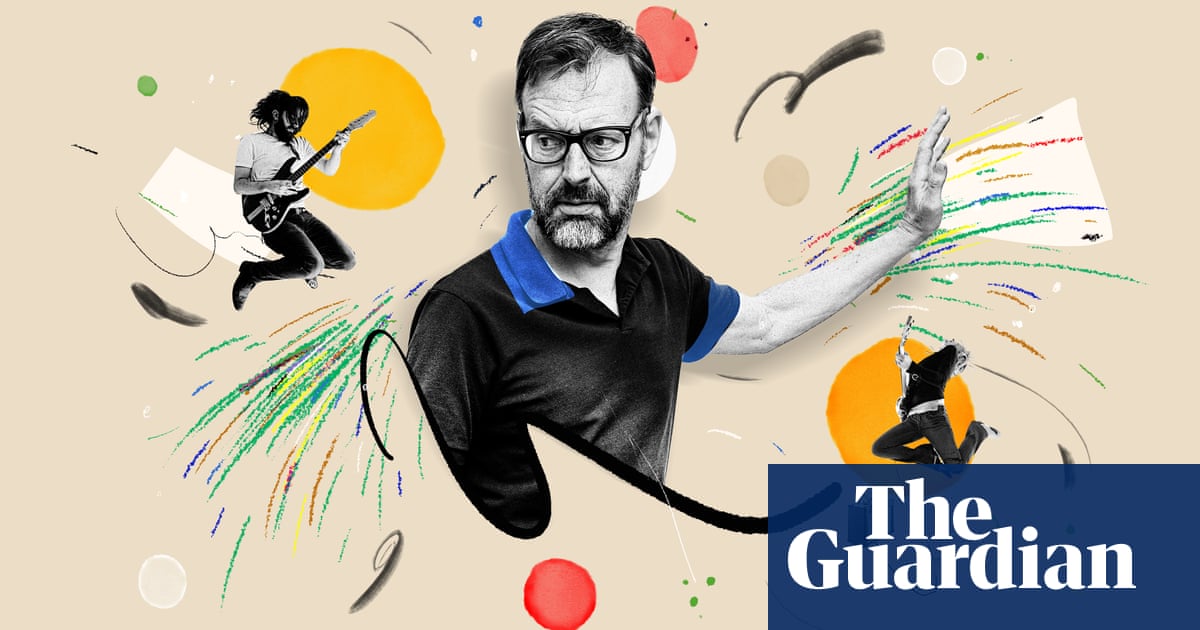

It is Monday afternoon. I am in a recording studio in London with a few members of the band I’m in, George the engineer and Ben, a trusted collaborator. We’re listening to a bare bones version of a new song, but my mind wanders a little; I have only just arrived after a weekend away, so I was not part of the morning’s work that got us here, and I’m barely part of the present discussion. Mostly, I’m here for moral support.
When the song ends and I return to myself, everyone is looking my way.
“How about it?” says one of them. “Are you ready to play some piano?”
“Me?” I say. “Um, OK.”
I can’t really play the piano, and that is why I’ve been asked. For this track they’re after something skeletal, naive and unrehearsed – the sound, in short, of someone who can’t really play the piano. If they wanted something confident, accomplished and in time, well, we have a piano player for that. Though he’s not here.
The chords of the intro, verse and chorus are scrawled on two sheets of A4 and handed to me. I sit at the grand piano in the other room, headphones on, and wait. I get only snippets of the conversation behind the desk, but it sounds as if some people are preparing others for what they are about to hear.
“OK,” says George finally. “Two bars in from the top.”
I count eight beats and play the first chord, a straightforward inversion of B minor. Then I move to the second chord, watching my fingers intently. Then the music stops.
“Sounding great,” says a voice in my headphones. “Shall we put you in at the top again?”
“Sure,” I say, trying to square the idea that it sounds great with being asked to start over four seconds in.
This happens twice more, with the gap between the music stopping and someone speaking getting longer each time, as if trying to compose themselves before issuing further instructions.
“Once more?” says George, eventually.
“We’re getting there,” says the guitar player, though we clearly aren’t.
It becomes clear that I am mistaking the intro for the start of the verse, going round the chords twice instead of moving to the D for the second line. Once this is cleared up, I make some headway before I’m interrupted again. The silence that follows is long. I can just see everyone’s faces behind the glass: inscrutable, possibly perturbed, as if they’re working out how to deliver bad news. Finally, there is a crackle in my headphones.
“Love what you’re doing in the chorus,” says a voice. “But we’re thinking maybe don’t play the seventh on that final A.”
It takes me a long moment to figure out what this actually means, which is: don’t accidentally hit that G with your thumb again. I try to frame a response which at least makes the choice sound deliberate.
“Good idea,” I say. “Leave it pure.”
I play through the whole song three times, before going back to fix the bits I never got right once. It turns out that even if you’ve been selected for your ineptitude, playing the piano not very well while people listen carefully is still stressful and humiliating. By the end I am damp with sweat and shame. I think: I am bad at the piano, but I’m not normally this bad.
I try to play the final passage – a simple descending line – with something approaching panache, and fail miserably. You can actually hear my tortured train of thought in the notes as I land them, with great hesitation, some way behind the beat.
Apparently, this more or less fits the bill.
“I think we’re covered,” says George. “Come on in.”
By the time I return to the mixing desk George is nudging certain passages so that they sound uncertain and wayward, but not too uncertain and wayward. This is humiliating in its own way, but I’m wrung out and past caring. They asked for bad piano, and I gave them my very worst.
In the middle of listening back to the quasi-corrected version, our actual piano player arrives. He waves, and then folds his arms to listen along.
“New song?” he says.
“This is it so far,” says the guitar player. The piano player turns to me and mimes playing the piano the way a marionette might: fingers in claws, arms alternately lifting and falling.
“That you?” he says.
“Of course it’s me,” I say. “You couldn’t do all those mistakes in a row. Not in a million years.”
 Print
Print


